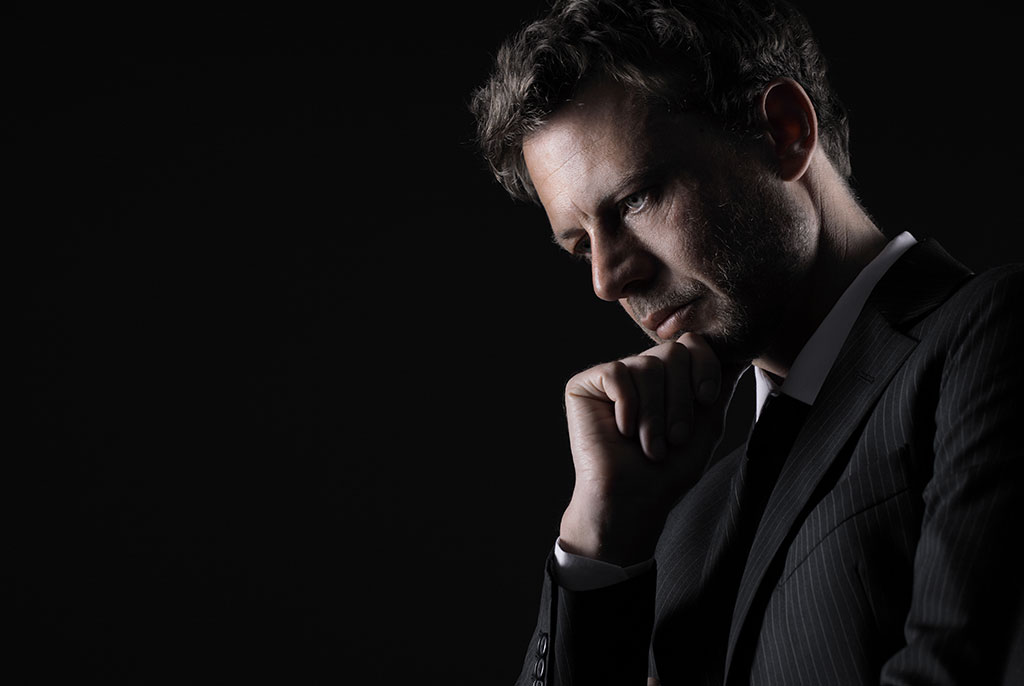The 6 biggest fears of any CEO

There’s no such thing as a fearless executive.
CEO fears are common because every human feels fear, but CEO fears loom larger. The weight of decisions, reputation and an organization full of talented people rests on their shoulders.
Alex Turnbull, CEO of Groove, writes on his company’s blog that he’s been kept awake by his fears. He fears bad products, bad decisions and disappointing customers and investors. Even so, Turnbull loves his fears. Why? “Because they make me a better entrepreneur,” he writes. “Every one of my biggest fears drives me to ensure that I never have to see them come true.”
And CEO fears are best handled like Turnbull: Acknowledge that they could happen, then work to ensure that they never do.
Here are six of the fears that CEOs may encounter in their careers.
1. Fear of being an imposter
CEOs who feel like frauds are not alone, as more than 70 percent of people have experienced imposter syndrome. But for CEOs, this fear can ring truest amid hard, lonely moments.
CEOs are the lone decision-maker. Even the best can’t help but wonder whether their decision—made with the best of intentions—could hurt their company, its employees or their own reputation.
Fears of imposter syndrome can be challenged by acknowledging the feeling. Then, understand that other CEOs have also felt and conquered this fear. Perhaps a CEO can meet with a coach, a mentor or a mastermind group of peers who have successfully battled the same fears.
Next, CEOs should define success. What does success as a CEO look like in the next quarter? The next year? Hitting goals gives CEOs powerful evidence against imposter syndrome.
2. Fear of the wrong decision
Many paths lead to the wrong decision, including over-confidence, a lack of available information, and even indecision.
It doesn’t have to be this way. Jocko Willink, a retired U.S. Navy SEAL who’s earned the highest levels of recognition for leadership, suggests removing the fear of bad choices by opting for more frequent, smaller decisions.
“I mitigated risk by making smaller decisions rapidly and adjusting those decisions based on immediate feedback,” Willink told Vistage. “Because these decisions were smaller, I could make them faster—and they had less inherent risk.”
3. Fear of looking foolish
Looking foolish in public is a nightmare scenario for CEOs. But CEOs also have to worry about holding it together in front of the board, their executive team, their employees and the ever-judgmental eye of social media.
Not every CEO will make major missteps that make the headlines, but most CEOs will misspeak, make the wrong choice or act imperfectly.
CEOs must have the humility to not take themselves so seriously. Rather than demurring, CEOs should trust their values, dust themselves off, and laugh along. As Stoic philosopher Epictetus wrote, “He who laughs at himself never runs out of things to laugh at.”
4. Fear of risk and a bad economy
A bad economy can destroy the best companies. Even Amazon almost went out of business as the dot-com bubble burst.
CEOs know this well. According to the February 2021 WSJ/Vistage Small Business CEO survey, 76% of CEOs said that they were very or extremely concerned about the national economy. Two-thirds reported the same level of concern for their local economy.
Not only do bad economies bother CEOs, but so does unforeseen risk. Much like an economic downturn, risk—in the form of pandemics, industry disruptions, and natural disasters—often comes when least expected.
But as Jim Collins wrote in “Good to Great,” successful people are not separated by the presence of difficulty, but by how they handle it.
The best way to handle unforeseen circumstances is to plan like they will happen. Amazon survived the dot-com bubble because of well-timed financial planning. Countless CEOs have survived myriad economic disasters by planning their budgets like they will happen. Planning for the worst-case scenarios may be scary, but it’s a CEO’s best weapon to take on trouble.
5. Fear of not motivating employees
Being a CEO means motivating many humans, often made difficult by their very humanness. Stress, engagement and morale are difficult to predict and tougher to manage.
The February 2021 WSJ/Vistage Small Business CEO survey found that 47% of CEOs are very to extremely concerned about employee morale, compared to 34% reporting the same level of concern about their own morale. To combat this fear, CEOs must get creative, especially with so many employees working remotely.
Take Google as an example. The company answers weekly questions from employees, shares information (such as product road maps) with employees, and allows employees to spend 20 percent of their time working on whatever the employees want. This last method is how Gmail and AdSense were first developed—talk about motivation.
6. Fear of failing
In Norwest Venture Partners’ 2018 CEO Journey Study, 90 percent of CEOs admitted that failure was their biggest fear.
But for better or worse, failure is part of life—everyone fails, on matters small and large. The best CEOs face the potential of failure head-on. As author James Clear writes, the only real failure is not taking action.
But fear of failure is pernicious because it often robs executives of their will to act. Flywheel Sports CEO Sarah Robb O’Hagan told Forbes that fear of failure leads to a lack of risks, often a bigger reason for executives not reaching their potential than failing.
O’Hagan offered a solution: “You have to say to yourself, ‘Failure is a part of growth; it’s going to happen.’ Don’t be scared of it because if you hold back you aren’t going to get to the places that actually give you new skills and new experiences.”
Category: Personal Development
Tags: CEOs, executive development

